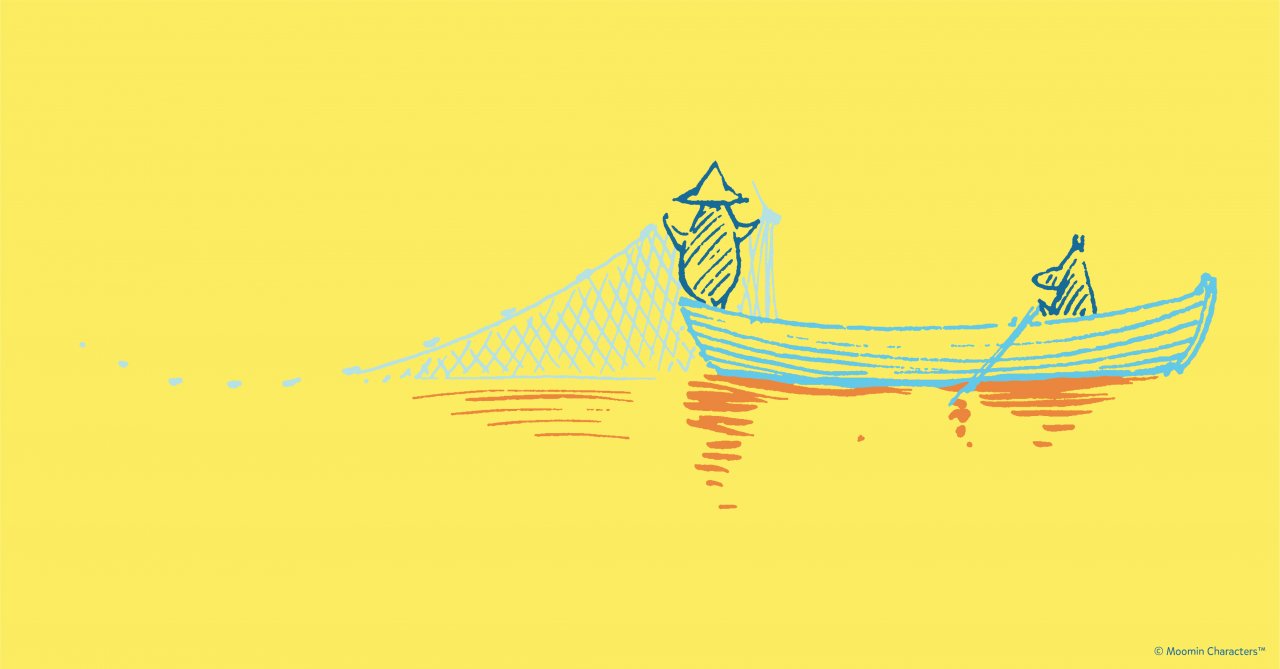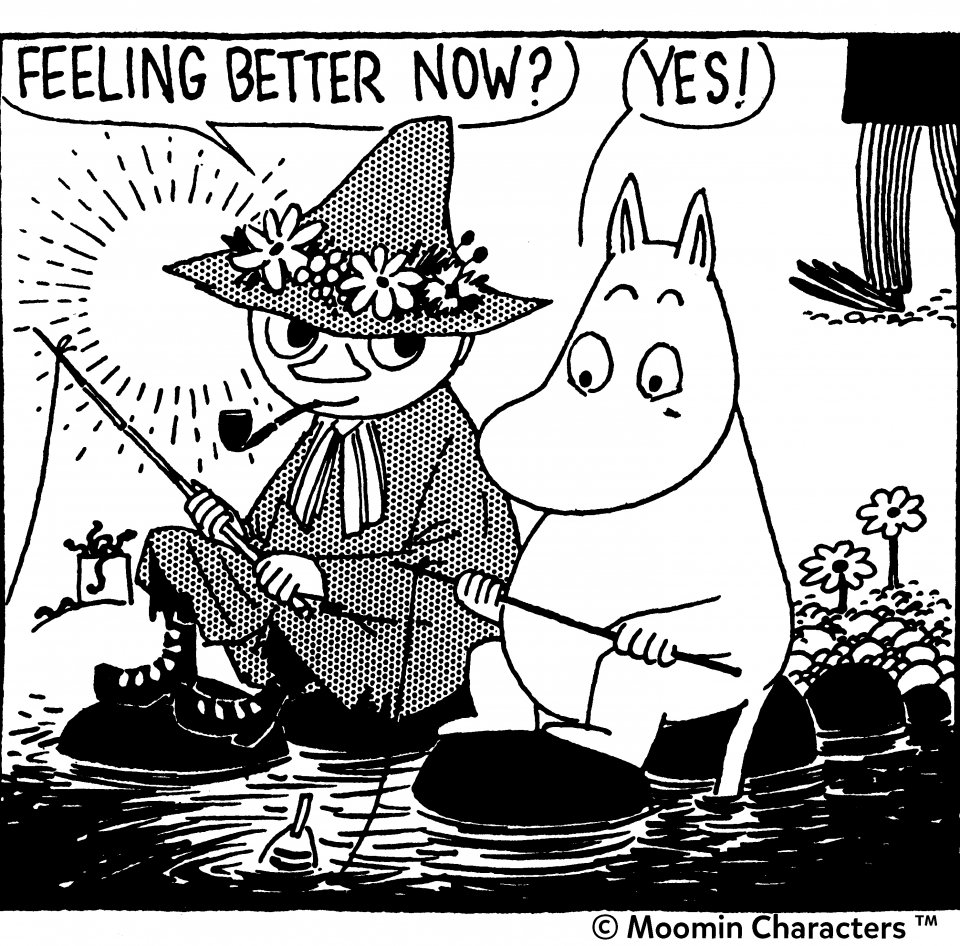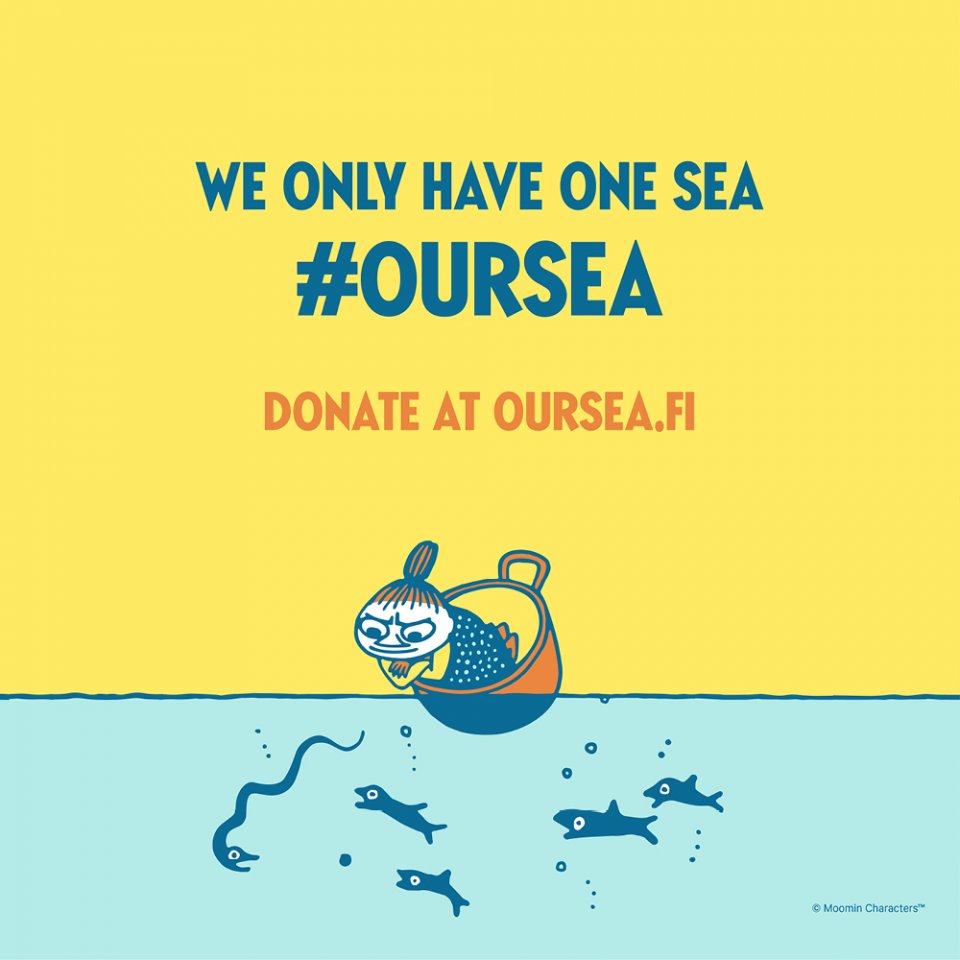What would the Moomin stories be without fishing trips? Fishing is a common occurrence in Moominvalley and the Moomin family often set out on adventures at sea - and so do many a Baltic Sea residents come summer.
The water began to get deeper in very gentle, sweeping terraces of sand, descending in the water like a broad ceremonial staircase. Moomintroll rowed towards the point over forests of seaweed that got darker and darker.
‘Stop!’ shouted Moominpappa. ‘Go back a bit. The bottom’s fine just here. We’ll lay it out obliquely towards those rocks. Slowly now!’
He threw in the float with its little white pennant and dipped the net into the sea. It glided out slowly with long even movements, drops of water shining in the mesh. The corks rested on the surface for a moment, and then they saw them sink, like a necklace of beads behind them. It was a very satisfying feeling putting a net out. It was a man’s job, something one did for the whole family.
Moominpappa at sea, 1966
What would the Moomin stories be without fishing trips? Fishing is a common occurrence in Moominvalley and the Moomin family often set out on adventures at sea – and so do many a Baltic Sea residents come summer.
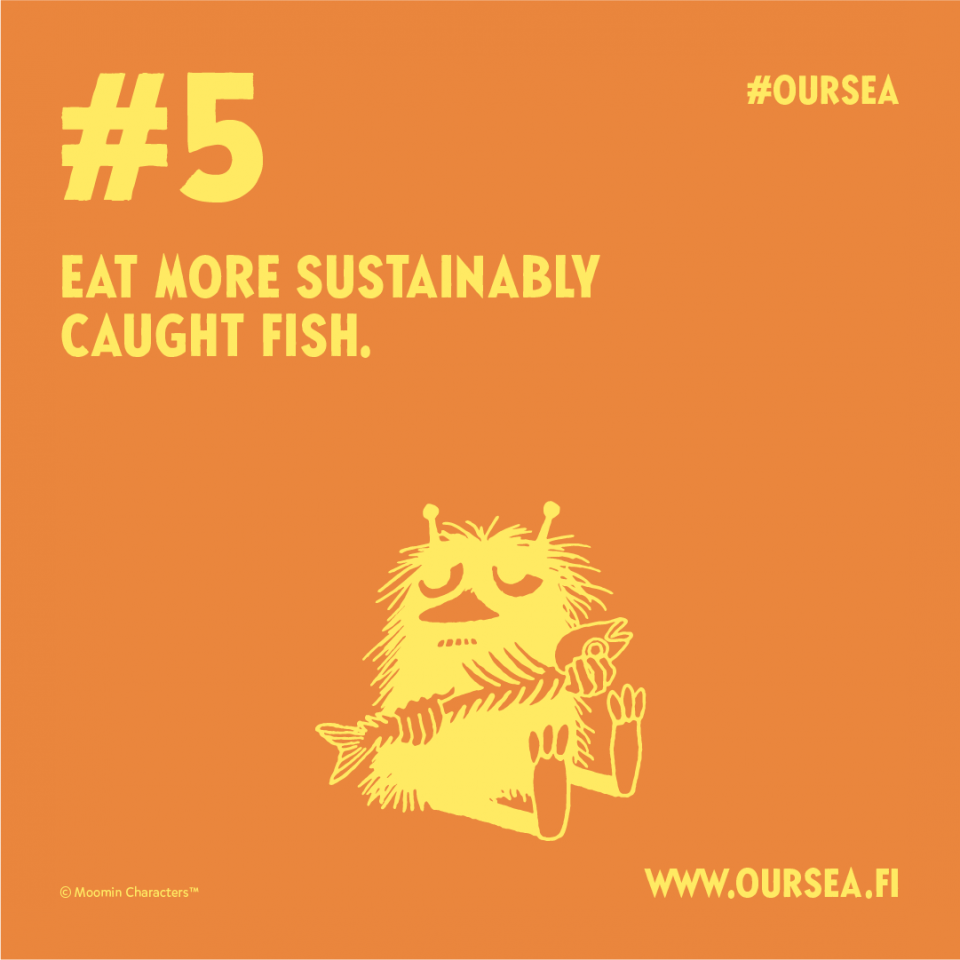
For each sustainably caught Baltic Sea fish you eat, you’re reducing the amount of nutrients that overload the Baltic Sea – the cause behind the enormous algae bloom during warm summer months. This eutrophication is mainly caused by the nutrient load from agriculture and sewage water from cities, which are potent in nutrients that algae can sustain themselves on: phosphorus and nitrogen.
Even though the urban and industrial sewage water is cleaned more effectively in present time, the nutrient load affects the sea negatively.
The amount of cyprinid fish has increased in the past years because they survive better than other fish in the eutrophicated water. When these species feed from the bottom, they stir up nutrients in the water, and in doing so they are furthering the problem of eutrophication. Roach and bream are low in fat, are healthy and taste good, and are completely undeserving of the name “trash fish”.
Tove Jansson, Moomin and the Golden Tail, 1958
For a healthier Baltic Sea, apply the #OURSEA campaign tips to your lifestyle – eat more sustainably caught fish! By the way; the book Moominpappa at sea can be bought here.
The Moomin community to the rescue of the polluted sea
2020 marks the 75-year anniversary of Tove Jansson publishing her first Moomin novel. To celebrate the anniversary Moomin Characters Ltd has launched the one and a half year long #OURSEA campaign in collaboration with the John Nurminen Foundation.
At www.oursea.fi, you will find more useful information on what you can do to help save the Baltic Sea – the sea that inspired Tove Jansson to create the beloved Moomin stories.
The goal of the campaign is to collect one million euros for John Nurminen Foundation’s work to save the Baltic Sea and its heritage for future generations. A donation of 10€ can remove 40 kg of blue-green algae from the Baltic Sea. To take part in the campaign you can make a direct donation via www.oursea.fi, buy a campaign product, learn more about the sea, the challenges it faces and solutions needed to help improve the situation, as well as influence your friends, family, colleagues and politicians to take action.
On the website you can follow how the campaign counter works its way up to the campaign’s goal of one million euros.
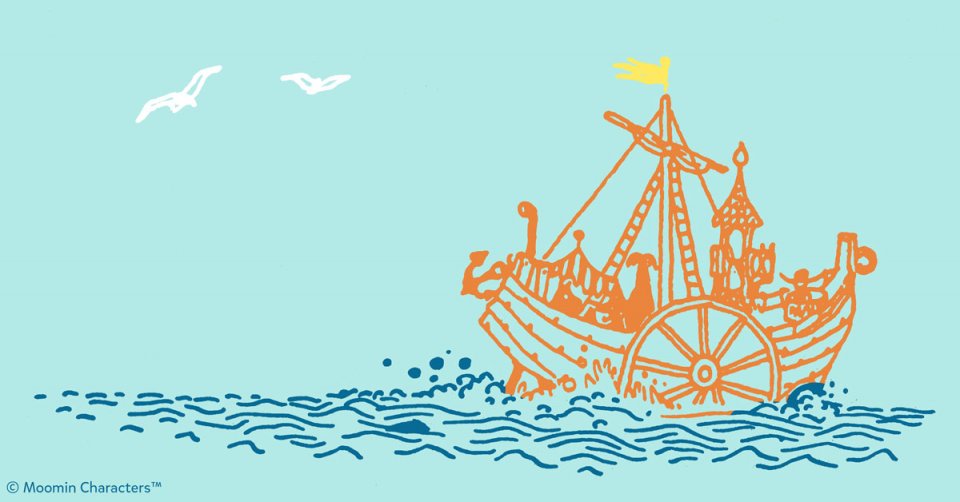
For Moominous adventures – choose environmentally friendly fuels and vehicles!
The Moomin family loved boating, and used boats for fishing trips as well as longer journeys, in hope of great adventures.
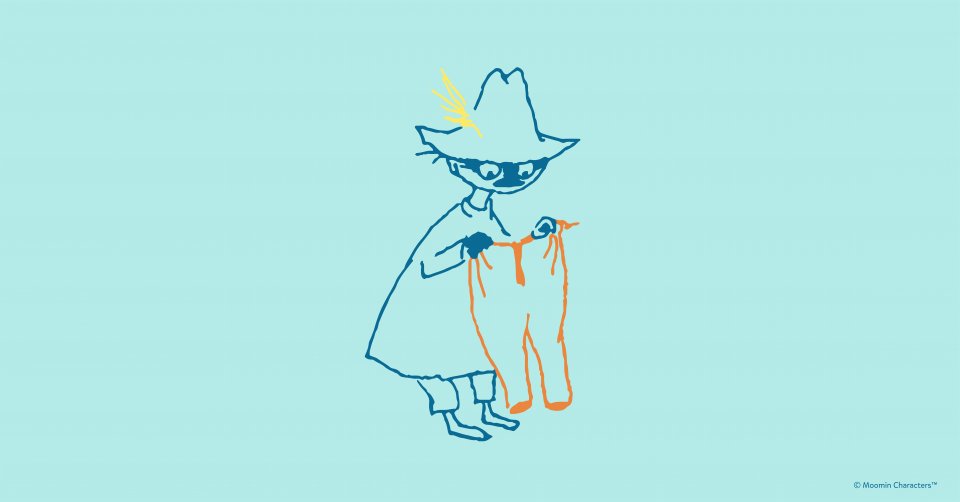
Wear your old trousers – follow the philosophy of Snufkin for an environmentally friendly lifestyle
The Moomin campaign #OURSEA for cleaning up the Baltic Sea inspires people to environmental deeds – and Moominvalley is in fact full of good examples on environmentally conscious decisions if you know…
